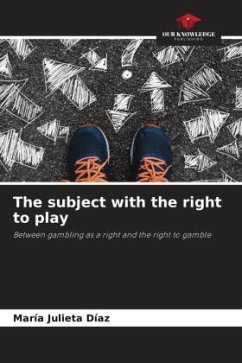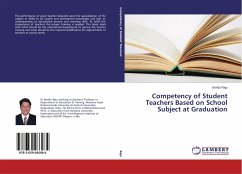The present research work started from thoughts and reflections on how the concept of law was constituted, and what are the current consequences of this idea, in particular the right to play and to play, a more than obvious situation, they said to me. A more than obvious situation, they told me, how to doubt or question the rights and guarantees of the same? It is for this reason, because of the obviousness, that the research work was directed along this path, along the path of the obvious, since what we believe to be so obvious is not so obvious.This book is organized in four chapters. They are not only historical but also genealogical, problematizing the epistemological positions that in law and the right to play and to play have been linked. Consequently, the discourses on these hegemonic positions enter as absolute truths in historical, social and political practices.
Bitte wählen Sie Ihr Anliegen aus.
Rechnungen
Retourenschein anfordern
Bestellstatus
Storno








